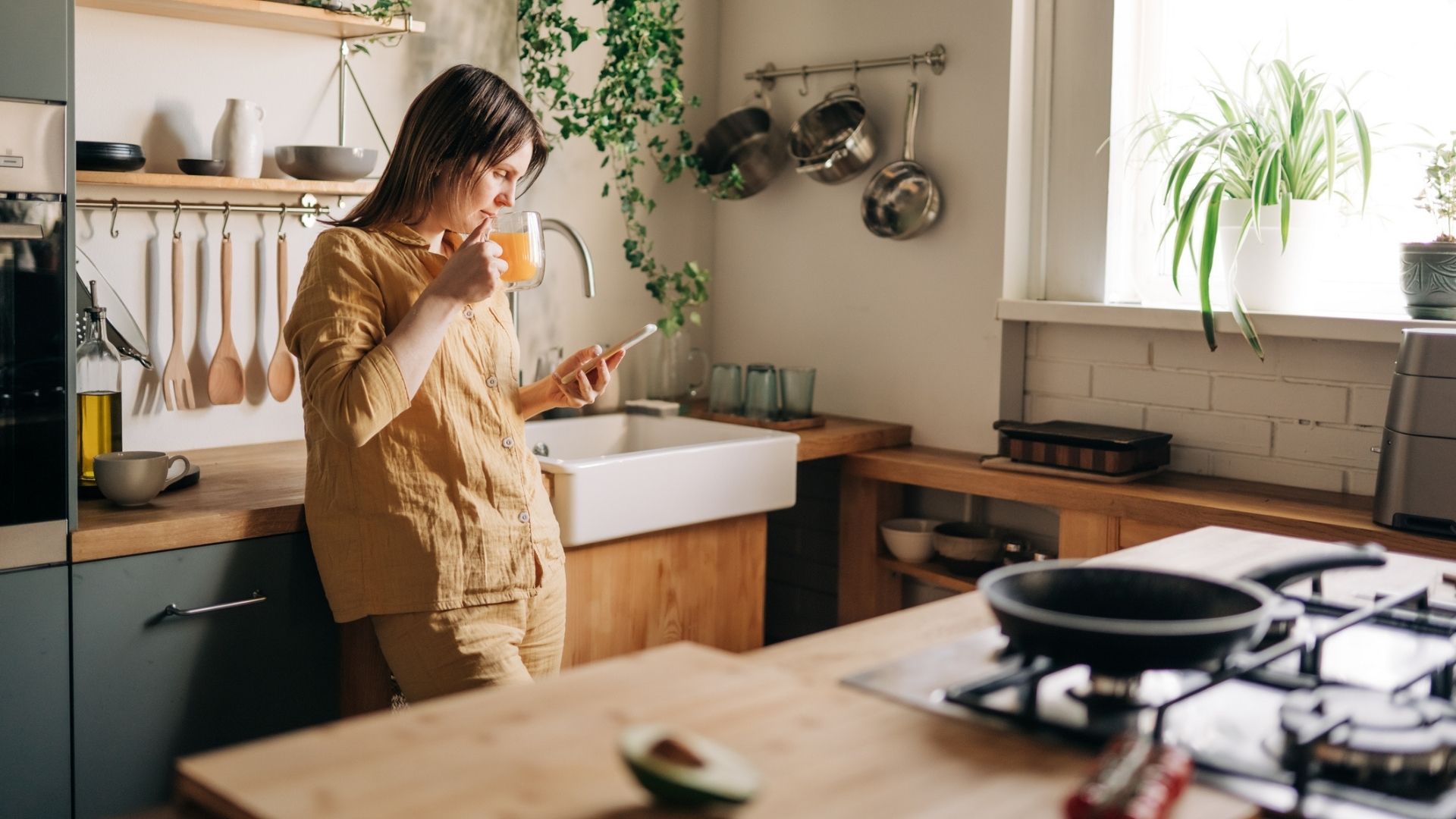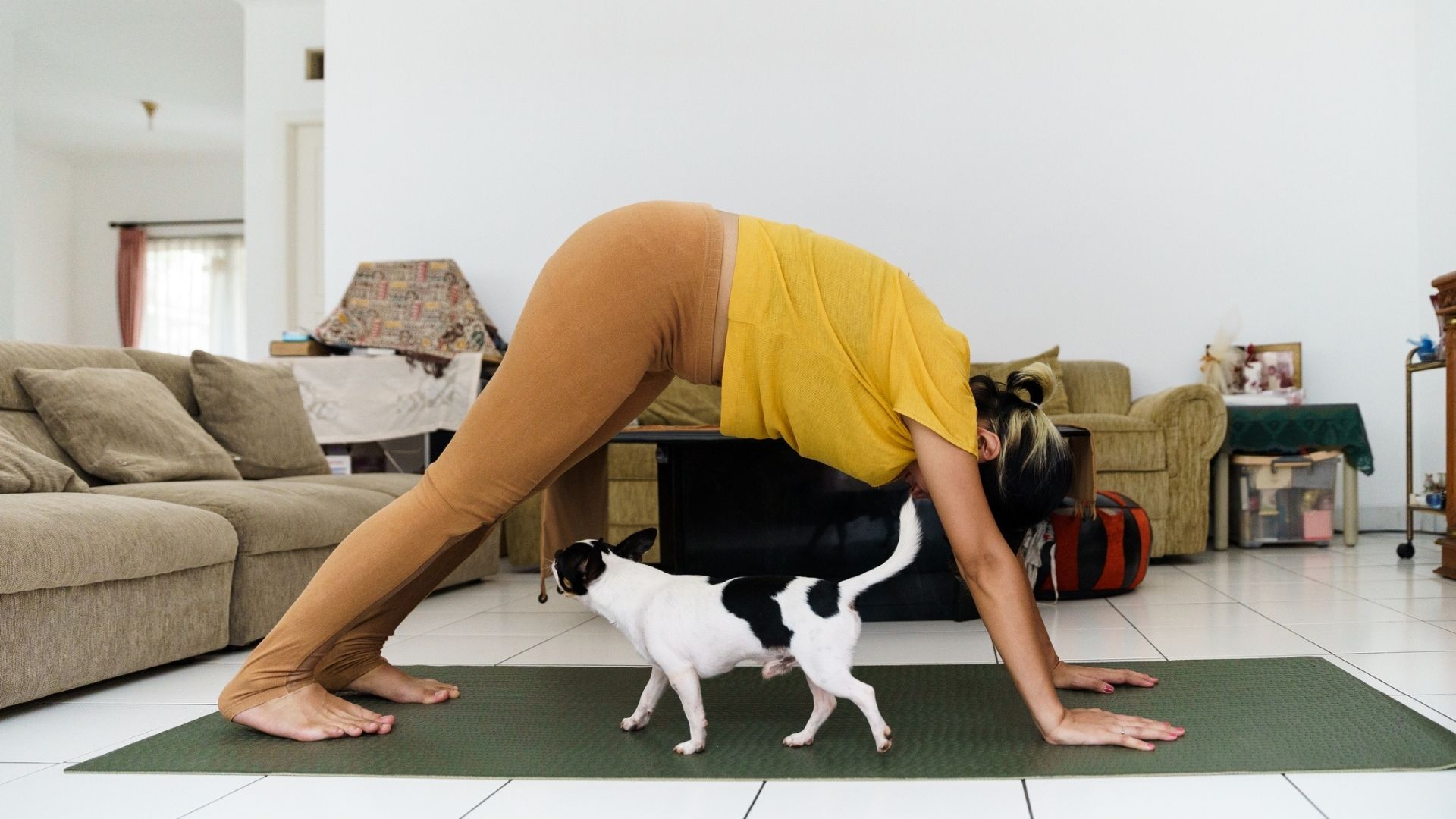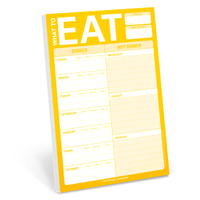Sunday reset—how to create the perfect routine for a new week, according to the experts
A Sunday reset with the right routine can help you get the most out of Monday


A Sunday reset could be just the thing you need if you're looking to start Monday with a spring in your step. While there's no getting away from the stresses that a new week can bring, starting it in the right way can be vital in helping you to cope with them.
Reams of social media videos will have you thinking that you need to devote a whole day to the process, taking hours to go through and clean your entire kitchen from top to bottom week after week, but there's no need to be quite that intensive to get the most out of the process—unless you want to.
Because that's the thing about a Sunday reset routine, and why it's one of the biggest wellness trends for 2022, it's whatever makes you the most relaxed and prepared to go into the new week. To get started, experts including a neuroscientist, nutritionist, sleep specialist, and military coach explain the best ways to hit reset for the week ahead.
What is a Sunday reset?
A 'Sunday reset' is a process where you take some (or all) of a day at the weekend to prepare for the week ahead. “It’s a perfect opportunity to do things such as catching up on lost sleep, as we often don’t sleep enough during the working week, spending quality time with friends and family, as well as spending some time thinking about any problems or issues that are on our mind,” explains Dr Lindsay Browning, psychologist, neuroscientist and sleep expert for And So To Bed.
“As this cycle is likely to continue as you approach the new week, it’s important that you reset over the weekend not to overload yourself.”
But as well as being a mental exercise, a Sunday reset is a physical activity. You might take the time to do household chores that you wouldn’t normally get the chance to do, like organizing your closet, or do a lengthy skincare routine that doesn’t fit into your normal week.

A Sunday reset will look different for everyone but each one should have the same end goal: to start the working week as well-rested and with your head as clear as possible.
Sign up for the woman&home newsletter
Sign up to our free daily email for the latest royal and entertainment news, interesting opinion, expert advice on styling and beauty trends, and no-nonsense guides to the health and wellness questions you want answered.
How can a Sunday reset routine help prepare for Monday?
Resetting over the weekend can help with the dread and anxiety that some people feel ahead of Monday morning, sometimes called 'the Sunday scaries', by clearing out our minds and helping us to get ready physically for the week ahead.
“When we have too much on our mind, like too many to-dos or major issues we are thinking about, we can find that our stress levels rise due to excess cortisol and adrenaline,” says Dr Browning, pointing out the similarities between the Sunday reset and low dopamine morning routine.
“If we spend time at the weekend dealing with any unfinished tasks or make time to think about anything that’s on our mind then our brain can feel clearer and we can feel less stressed. It’s a good idea to start the week with a clear head since we are likely to have more demands put on us once we start work again on Monday morning.”
How to create a Sunday reset routine
For starters, write down everything that you want to do on the Sunday in a list, starting with the most labor-intensive tasks first down to something as regular as having a shower.
This won't only ensure that you're more likely to do everything on your list, as the harder things will be out of the way when you're feeling fresher, it will also help you recognize that you're winding down from the weekend and getting ready for a new week.
Not everyone's Sunday reset will look the same and you could do as little or as much as you like, as long as you feel ready for the week ahead. But if you're looking for ideas, here are some expert-recommended ways to get started.
1. Plan for the week ahead with a journal
Known as an expressive coping method, journaling is an integral tool in the Sunday reset to refocus your mind before Monday morning. Start by writing down what you've got planned for the week ahead and anything that you need to do to prepare for it. Naturally, the best way to do this is in a dedicated diary but a piece of paper pinned to the fridge could be equally as effective.
Include necessary tasks like work commitments, alongside social occasions, chores you need to do and any personal time you've got planned, like going to the gym.
There's loads of evidence to suggest it's one of the best ways to alleviate anxiety before the start of a new week, including a study from Pennsylvania State University which looked at 70 adults with elevated anxiety. They found that online journaling over 12 weeks significantly reduced the subjects' mental distress, and longer-term journaling was even associated with greater resilience over time.
It's a technique that Farren Morgan, military coach and tactical trainer, also recommends. "Journaling is my method of planning because it allows me to get my thoughts out in a way that can be arranged and organized," he tells woman&home. "It ultimately improves my productivity as well, allowing me to document my ideas and providing me with the opportunity to review and reflect on them, in case any modifications need to be made."

2. Get outside for exercise
When it comes to how much exercise you should do per week, about 150 minutes is the NHS-recommended amount. Some people do more than this and some less but when it comes to prepping for another week, there’s nothing better than getting out to stretch your legs.
“Often completely underrated, exercise is the best thing you can do to give yourself that complete reset, both mentally and physically,” says David Wiener, training and nutritionist specialist at Freeletics. You could even combine it and top up your social batteries by going out with a friend.
It doesn’t have to be a 10k run or a heavy gym session by any means though, even the smallest amount of exercise has been proven to do wonders for your body ahead of a potentially stressful period.
A review from New York University looked at several studies on the psychological impact of exercise and found that working out improves the way we handle stress, as it alters hormone responses in the body and affects neurotransmitters in the brain, such as dopamine and serotonin—aka the 'happy hormones'.
But it doesn't only improve your mood, David says. "Working out can also help with your brain health and memory. Your heart rate increases when you exercise, which promotes the flow of blood and oxygen to your brain and stimulates the production of different hormones. This will enhance the growth of brain cells and help to improve your memory, which is another thing we need for the working week ahead."
Which type of exercise is best for this though? While all types of exercise help with stress reduction, aerobic exercise is considered most beneficial, he adds. “Exercises such as biking, walking, jogging, running, or swimming have an incredible effect on your body and mind.”
However, as with any goal you have, the exercise that works best is the one you enjoy the most since you're more likely to do it. So whatever gets you out and about, anything from strength training to walking for weight loss, will be a good choice when it comes to your Sunday reset routine.

3. Stretch it out
After your Sunday stint of exercise, or instead of if a full exercise session doesn't work for you this week, be sure to stretch out your body.
“Your morning fitness routine can be as simple as doing static stretches and mild dynamic stretches to increase your mobility and get your body active,” says Farren Morgan. There are plenty of routines out there, including ones that will work your entire body, like stretching for runners.
Alternatively, Farren says, "Yoga is also a great way to center your mind and body, increase your stability and improve your posture.” You could try yoga for beginners if you're new to the practice, or yoga for weight loss if you have set goals for your exercise normally during the week.
4. Make a home-cooked meal
Now let's think about breakfast, lunch or dinner, whatever works for the time you wake up. “Sunday should be a day when we think about the quality of food we’re eating, trying to cook from scratch, rather than reaching for something pre-packaged,” says Suzie Sawyer, clinical nutritionist at Alive.
Doing so won’t only mean that you’re starting the week with a balanced meal, but you're more likely to be eating the essential vitamins many of us miss out on during the Monday to Friday grind.
“The typical western diet of heavily processed foods is lacking in B-vitamins,” Suzie says. These are essential for many of the body's everyday processes, research from Northumbria University reveals, everything from building new cells to eye health and maintaining a healthy appetite. A lack of them is responsible for common ailments like fatigue, random nausea, irritability and constipation, the same study confirms.

But it's easier to get more B-vitamins into your diet ahead of the new week. “They are rich in whole grains such as brown rice, wholemeal pasta, and bread, plus fruits, vegetables, beans and legumes," Suzie says. "The refining process strips foods of nutrients but also fiber, which helps balance blood sugar and, therefore, energy levels.”
5. Drink at least 1.5 litres of water
The reason why many of us might wake up on Monday morning feeling a little lackluster is down to dehydration, research from Danone Research Centre shows. Even mild dehydration, the study suggests, is responsible for feelings of decreased alertness, increased sleepiness, fatigue and confusion, so combat this early as part of your Sunday reset routine.
“Having 1.5 liters of water daily can make a huge difference to how we feel energy-wise and it also helps sharpen the brain,” says Suzie.
This is among other drinks like tea and coffee, and you should drink the water throughout the day from morning to feel the full benefits.
6. Take a vitamin D tablet
Anyone lucky enough to have soaked up the sunshine this weekend won’t have to worry too much, but if you were stuck indoors or if it was rainclouds for the full 48-hours, then take a vitamin D tablet.
Not only will it help you re-stock on the feel-good hormone serotonin, as research from CHORI found that vitamin D actives the gene that makes the enzyme responsible for turning amino acid tryptophan into serotonin in the brain, but your immune system will be in a better place to start the week on a high.

“In terms of re-setting, vitamin D plays a key role in overall health, especially in the immune system but also for our bones, muscles and teeth. Therefore, we all need to be taking a daily supplement,” says Suzie.
“We also know that having sufficient levels of vitamin D in the blood may play a part in mood and motivation, so if Monday morning leaves you in a tailspin, then topping up your vitamin D levels might just do the trick.”
7. Plan your meals and your clothes in advance
Deciding what to make to eat and cooking are often the two biggest tasks when it comes to food during a busy week, so get ahead as part of your Sunday reset with some meal planning.
Make a plan ahead of going out to the supermarket by writing down what you want to eat for breakfast, lunch and dinner every day, and make a list of all the ingredients you'll need to make the meals. Not only will it save you plenty of time and reduce your food waste, but research from the University of Paris also links successful meal prepping with having a more varied diet and a higher-quality diet nutritionally.
Unless you want to, you don't need to actually make all of your meals in advance. This would take a sizeable chunk of time from your day and the research only points to the benefits when it comes to planning what you're going to make, rather than actually making it.
Knock Knock What To Eat Meal Planning Pad - $7.77 / £5.95
A pad like this makes meal planning easy. It prioritises space for planning dinners as this often takes the most time but also has room for planning breakfast, lunch and snacks so you always know what's on the menu.
The prep doesn't just stop at your meals though. According to a YouGov poll, almost half of us take more than 30 minutes to get ready in the morning. If you find that the bleary-eyed scramble for clothes features as part of your morning more often than not, plan in advance.
Whether you're working from an office or out and about, pick the clothes that you want to wear for the week and group them together on hangers by outfit. Place all the outfits in the order that you want to wear them in your wardrobe, so all you have to do on the day is grab and go.
Clothes-prepping is also just one of the reasons why having a capsule wardrobe is so beneficial, as you're building your week's worth of outfits from just a few pieces.
8. Fix your sleep environment
It could be as simple as changing your bedsheets or as transformative as switching up the position of your bed, either way, one integral element of the Sunday reset routine involves how you get to sleep.
But evidence suggests we certainly need some help with how to sleep better. According to research by luxury CBD brand OTO, over half of the women surveyed felt anxious about getting enough sleep and 38% found that their sleep was affected by stress.
"Creating the perfect sleep environment is all about considering the right circumstances before bed," says James Wilson, The Sleep Geek. “Whether you sleep alone or next to a partner, it’s important to understand your personal preferences for key environmental factors, such as bedroom lighting, background noise and even the type of mattress you have. Unsurprisingly, these all have a big effect on the quality of our sleep.”
To fix your sleep environment, James suggests:
- Keep cool: A temperature between 16 and 18 degrees is optimum for sleep. If it's feeling on the cooler side, just ensure your sleeping environment is cooler than the rest of the house
- Stay calm: Tidy your space and make sure to remove anything garish, the more zen the better.
- Be comfortable: It might sound obvious but ensure your mattress and pillow are the best fit for you. These both make up your immediate sleep environment.
- Remain consistent: Light and sound also make up key components of our physical sleep environment, so keep these constant throughout your sleep to keep your body in the same relaxed state all night long.
9. Get at least 8-hours of sleep
Once you’ve sorted this out, you can focus on that all-important shut-eye. “When the new week starts you’ll likely have to get up to an alarm each day. Then in the evening, there can often be so many jobs that need to be done that we can’t get to bed as early as might like, resulting in less time in bed and feeling sleep deprived through the week,” Dr Browning says.
“The weekend is your best opportunity to catch up on some of this sleep debt, allowing yourself a lie-in, an early night or even a lunchtime nap is ideal.”
But naturally, altering your habits during the week will have a more permanent, positive impact on your energy levels. “It’s important to keep regular wake and bedtime seven days a week, as this will help you sleep, and wake, better. When you keep a regular sleep schedule, your body develops a robust circadian rhythm which helps you to sleep at the right time at night," she says.
"If you go to bed early and wake up early on weekdays but stay up late and have a lie-in on the weekend, you’re giving yourself weekend jet lag."
When it comes to a Sunday reset, however, the most important thing that all our experts agree on is that you do what feels best for you. If that's going for a walk in the morning to grab a coffee and getting straight back into bed for the rest of the day, or not getting out of bed at all, then that also works. Whatever you need to feel rested and ready for Monday morning.

Grace Walsh is woman&home's Health Channel Editor, working across the areas of fitness, nutrition, sleep, mental health, relationships, and sex. She is also a qualified fitness instructor. In 2025, she will be taking on her third marathon in Brighton, completing her first ultra marathon, and qualifying as a certified personal trainer and nutrition coach.
A digital journalist with over seven years experience as a writer and editor for UK publications, Grace has covered (almost) everything in the world of health and wellbeing with bylines in Cosmopolitan, Red, The i Paper, GoodtoKnow, and more.
-
 Celebrities who overcame scandal and came back stronger than before - from Jane Fonda to Martha Stewart
Celebrities who overcame scandal and came back stronger than before - from Jane Fonda to Martha StewartScandals, controversies and fallouts can really harm a celebrity's reputation, but these stars proved there's power in putting in the work for a second shot
By Jack Slater Published
-
 Ranvir Singh’s denim midi dress is perfect for April date nights
Ranvir Singh’s denim midi dress is perfect for April date nightsYour favourite jeans will always be an easy outfit staple but denim dresses have the same comfort factor and more elegance.
By Emma Shacklock Published
